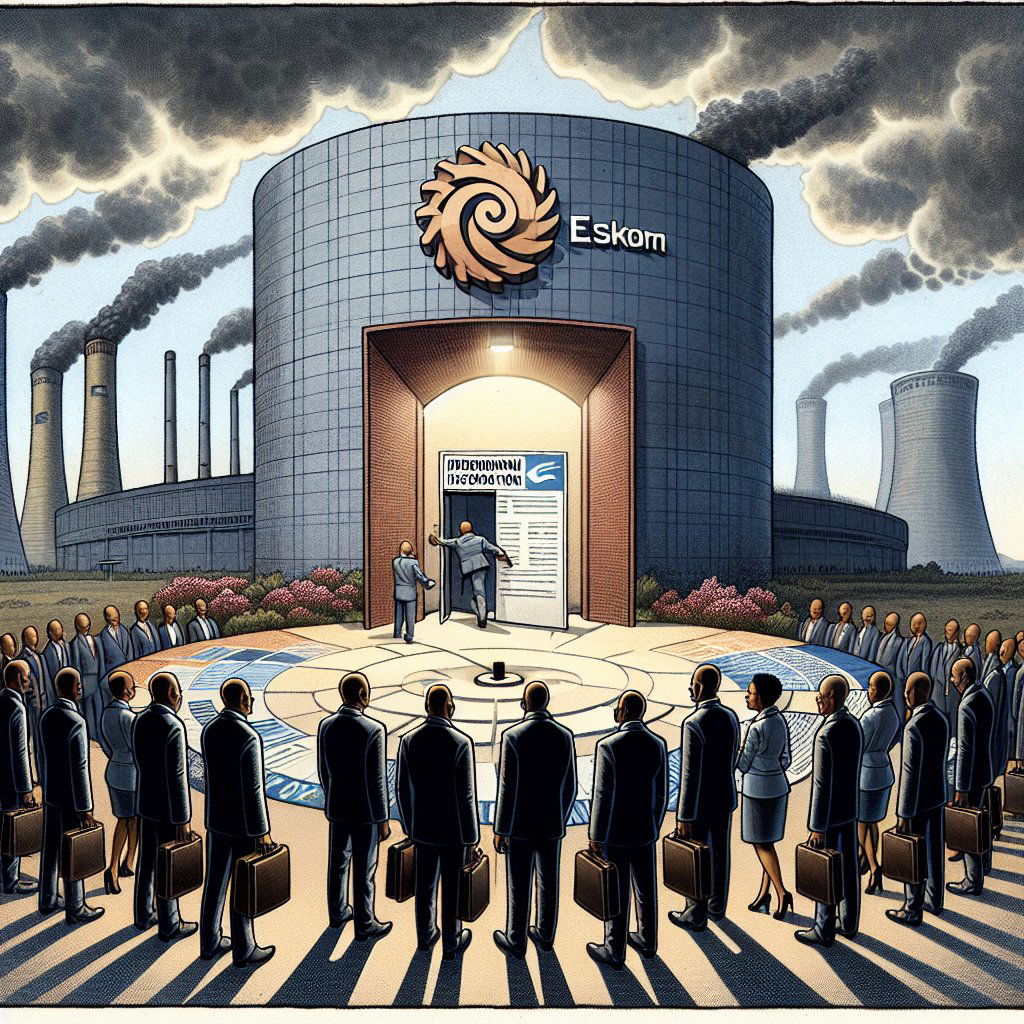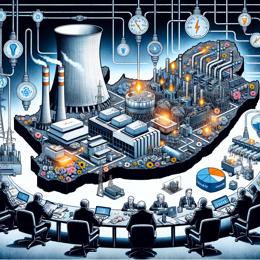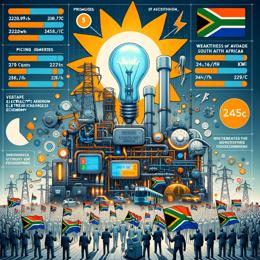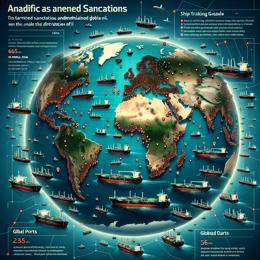Image: AI generated for illustration purposes
Eskom Set to Power Up with New CEO by Year's End
South Africa's beleaguered power utility, Eskom, is finally poised to appoint a permanent Chief Executive Officer (CEO) by the conclusion of 2023, according to recent declarations by Electricity Minister Kgosientsho Ramokgopa. This statement offers a glimmer of hope for the energy sector, which has seen the parastatal grappling with leadership gaps and operational challenges over the past year.
The search for a new CEO began in earnest following the abrupt departure of Andre de Ruyter in February 2023. De Ruyter left the organization without serving his full notice period, raising concerns and sparking widespread speculation about the stability of Eskom's leadership during a critical period of load shedding and infrastructure woes. In the interim, Calib Cassim has capably filled the role of acting group chief executive. However, the necessity for a permanent leader has been emphasized by stakeholders as crucial for the strategic direction and reform of the utility.
Several months into the recruitment process, Eskom found itself at a standstill. Original reports indicated that Mpho Makwana, Eskom's chairperson, and his board had narrowed the candidate pool to five potential successors. Yet, as the months ticked by, the delay in finalizing the appointment became a source of contention and concern, pointing to deeper issues within the government and Eskom's corporate governance structures.
Recent developments, as described in a SABC interview with Minister Ramokgopa, have shed light on the situation. The Eskom board, adhering to its Memorandum of Incorporation, has presented a shortlist of three candidates to Public Enterprises Minister Pravin Gordhan. However, previously leaked information suggested that political disputes and discrepancies between Minister Gordhan and the Eskom board were the culprits behind the protracted delay.
According to reports by News24's Carol Paton, an original recommendation from the board was dismissed by Minister Gordhan on the basis that a singular candidate's nomination did not meet the requisite protocol. The Memorandum of Incorporation of Eskom stipulates the need to present a choice of three candidates, prompting Gordhan to veto the board's initial decision.
This development underscores the intricate nature of the relationship between Eskom's administration and political overseers, where policy, governance, and politics intertwine. The political infighting and cabinet division, as described by Paton, provide context to the complexities at play in the decision-making process for such a critical leadership role in South Africa's energy sector.
As the country awaits the conclusion of this saga, the outcome holds significant implications not only for Eskom's future but for the nation's economic stability and developmental prospects. The appointment of a new CEO is expected to mark the beginning of Eskom's next phase, as the utility plays an indispensable role in powering Africa's most industrialized economy amidst ongoing blackouts and infrastructure shortcomings.
In summary, the resolve to appoint a new, permanent leader for Eskom comes at a critical juncture for the power utility and the country at large. The potential for improved governance, revitalized energy policies, and strengthened executive leadership is on the horizon, with the promise of greater accountability and operational efficiency within reach for Eskom.










